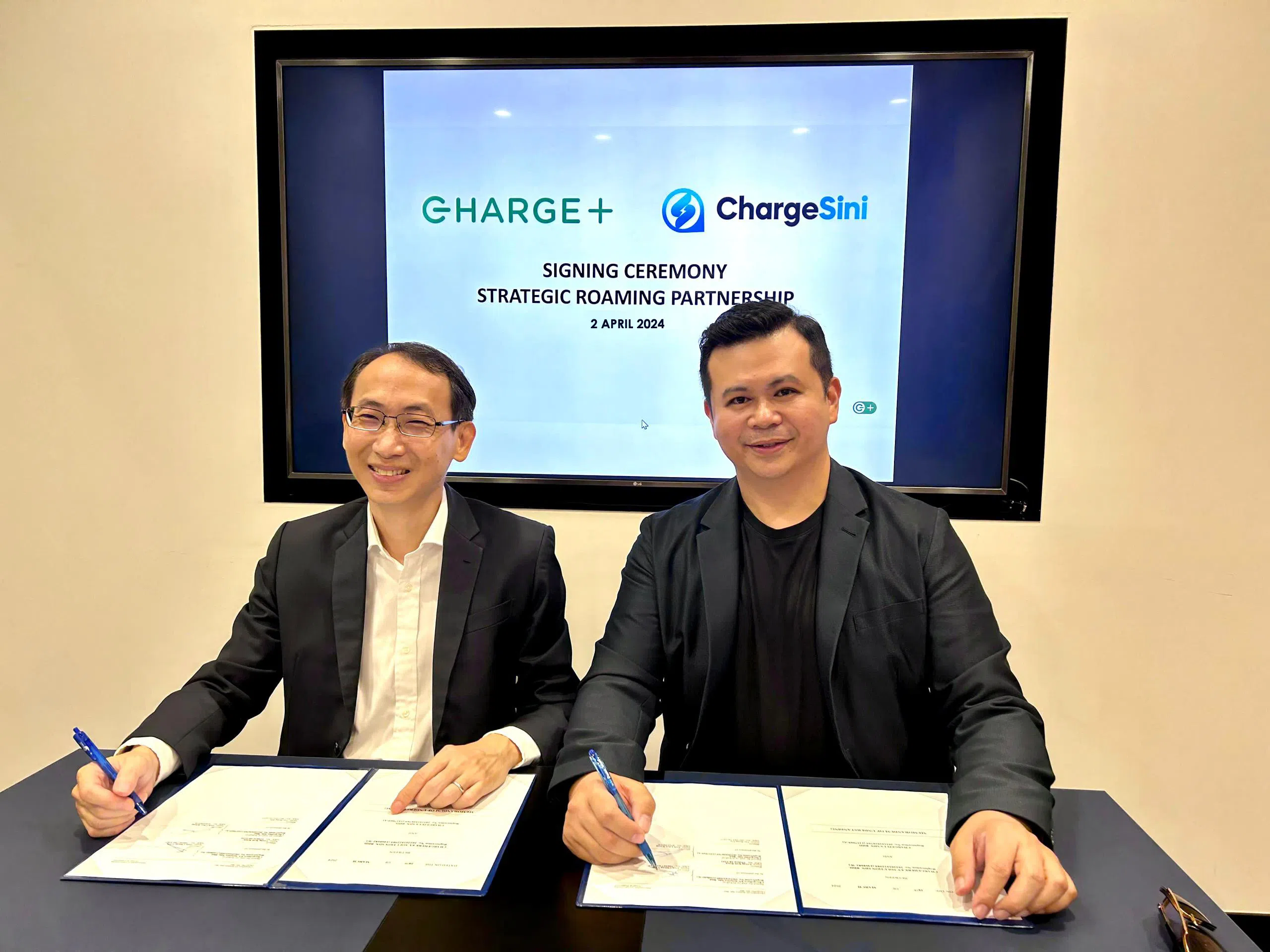SINGAPORE’S Charge+ and Malaysia’s ChargeSini have signed a roaming agreement that gives electric vehicle (EV) drivers access to both companies’ charging networks.
Goh Chee Kiong, Charge+ chief executive officer, told The Business Times: “It is significant because ChargeSini is the largest EV charging operator in Malaysia now, so the two largest EV charging operators across the Causeway are joining hands.”
Charge+, with around 1,700 EV charging points in Singapore, and ChargeSini, with about 700 in Malaysia, have the largest number of charging points in the respective countries.
Charge+ also has a small number of its own charging points in Malaysia, which makes the combined Singapore-Malaysia charging network of more than 2,400 points the largest to date.
The roaming service is expected to begin in the fourth quarter of this year.
When implemented, Singapore users will be able to charge and pay at ChargeSini locations in Malaysia through the Charge+ app, in addition to existing Charge+’s locations in Malaysia.
GET BT IN YOUR INBOX DAILY
Start and end each day with the latest news stories and analyses delivered straight to your inbox.
Conversely, Malaysian users will be able to charge and pay at Charge+ locations (in Singapore, Indonesia, Thailand, Cambodia and Vietnam) through the ChargeSini app.
He added that the combined regional network of Charge+ and ChargeSini could increase to around 4,000 charging points by the end of this year, as the companies aim to expand to 2,800 charging points and 1,200 charging points, respectively.
In October 2023, ComfortDelgro : C52 0%-owned CDG Engie and Malaysia’s Yinson GreenTech signed a similar agreement with a combined network of around 1,000 charging points, in what was then the largest Singapore-Malaysia charging network.
In August 2023, Charge+ signed an EV charging agreement with Malaysia’s state-owned power company Tenaga Nasional to access its charging network TNB Electron, which, according to its website, has 17 publicly available charging locations.
Charge+ is working on a 5,000 km EV charging highway, which will include 45 direct-current fast-charging stations in Singapore, Thailand, Cambodia, Malaysia and Vietnam. It also plans to have 30,000 EV charging stations in South-east Asia by 2030.







